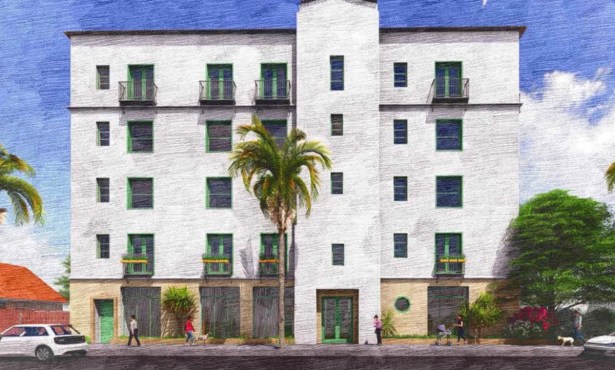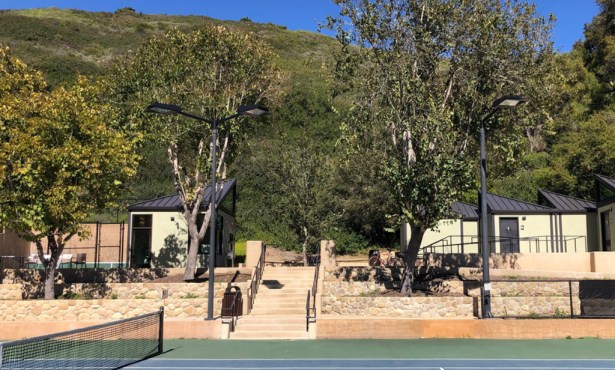Apartheid for the Common Man

A Chat with Phillip Noyce, Director of Catch a
Fire
by Roger Durling
Director Phillip Noyce continues his recent streak of historical
dramas (Rabbit-Proof Fence, The Quiet American) by
exploring the true story of Patrick Chamusso, a South African
oil-refinery foreman wrongly accused of sabotaging his workplace in
1980 during apartheid. Its plotline allows Noyce, who also directed
Patriot Games, Clear and Present Danger, and Dead
Calm, to apply his action-movie skills. And so Catch a Fire,
which stars Derek Luke and Tim Robbins and is currently playing in
Santa Barbara theaters, constantly keeps you guessing, even until
the very end. I recently spoke with the director.  What was it about the story of
What was it about the story of
Patrick Chamusso that compelled you to film it? I’d always
found that the South African experience is a beacon to the rest of
the world in terms of conflict and resolution. There were
prophecies of rivers of blood flowing in Cape Town, Johannesburg,
and everywhere if ever black rule were come to pass. Not only did
it not come to pass, but the country is even more prosperous and
peaceful, in some ways, especially in one important aspect. After
400 years of divide and decades of apartheid, the last 10 years
have been glorious in freedom but also forgiveness. I think they’ve
shown the rest of the world how to do it like no one else has in
the history of humankind. This story seemed to be of this one man,
an ordinary man — not Mandela, not Tutu. An ordinary man seemed to
encompass that whole lyrical story of South Africa.
This story happened 20 years ago, but it has an
immediacy given current world affairs. I do think that if
we look to the past, we can find a way to the present and the
future. We weren’t thinking about today, but we were thinking about
then. I was only thinking about today in terms of the ending of the
movie.
I understand Patrick Chamusso was part of the
production. Well, he advised us; he was directing
sometimes, constantly telling Tim Robbins to be nastier; and
telling the actors working as the bosses in the oil refinery scenes
that they had to not treat the black workers like they’re in the
rainbow nation, but try to remind them what it was like — well not
remind them, tell them — because they were too young to know. And
he was constantly on his cell phone talking to Derek Luke. So he
had a big influence. It was his story. This is his version of his
story, plus the police records and the records of his trial. But
mainly this is his story as told by me, a messenger, with the help
of a few hundred South Africans. How did people in South
Africa feel about you telling the story? They were
certainly receptive. We’ll probably see some interesting press when
the film opens in February in South Africa because the issue of
outsiders telling stories, of white people telling black stories,
and so on, is a valid and important issue. All I can say is I tried
to be the messenger and the storyteller, with all these people
being channeled through my ability to say “action” and “cut.”
Can you talk about how the casting of Derek Luke came
about? We were determined to cast a South African actor,
but everyone said, “You should give the rest of the world a
chance.” We searched in Nigeria. We searched in London. Finally, we
came here, to Los Angeles. We brought some South Africans with us
and Derek walked in and walked out about 10 minutes later, and
there was just no one else who could play the part. His quiet
strength, you know, just seemed to have that quality of a gentleman
and yet of someone who had a flame lit in his belly and you just
knew it would explode unless he would do something about the
pain.
I had the pleasure talking to him at the Toronto Film
Festival, and he mentioned visiting Nelson Mandela’s cell.
I was afraid that he wasn’t going to be able to make the
breakthrough, because it seemed that he was becoming burdened by
the responsibility of it all — the accent, all the slang;
officially, there’s 11 different languages in South Africa. It felt
like he was going to drown. Then he went to the cell. And he spent
a lot of time sitting in Mandela’s cell, and I really think
something happened in there. Stuff went through him and he came
out, and he was like coming out of prison; he was a new man. And
from that moment on, he seemed to grip it all. I think something
did happen in there and probably just because it was such a vital
ingredient in the whole fantastic South African revolution — that
cell, that prison.
One of the things I admire is that you give equal time
to Tim Robbins’s character and his side of the story. Why was that
important? I think it’s not interesting unless the
so-called movie bad guy can be explicable. If we can identify why
we would have done the same actions, no matter how heinous we think
they are, then I think that’s a valid portrait of any character.
Everyone has their reasons for doing something, whether it’s
madness or sanity. And I think that this character, Nic Vos — whom
I met — they all have their reasons, and I would say that no
policewoman or policeman would start their career wanting only to
serve, save, and protect.


